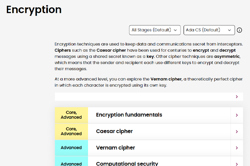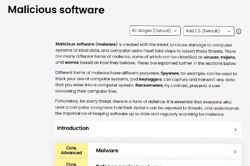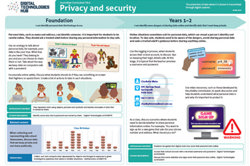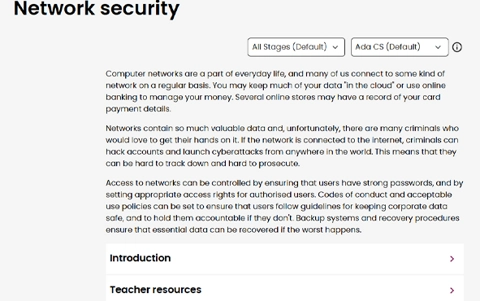Network security
This comprehensive online guide, provides a background to network security. To protect the data, it is usually encrypted. Authentication is the process of making sure that a user who attempts to sign in to a system is who they say they are. Traditionally, this is done with a userID and password, but most systems now require two-factor authentication or use biometric security measures.
Additional details
| Year band(s) | 7-8, 9-10 |
|---|---|
| Content type | Professional learning, Article or research |
| Format | Web page |
| Core and overarching concepts | Privacy and security |
| Australian Curriculum Digital Technologies code(s) |
AC9TDI6P09
Access multiple personal accounts using unique passphrases and explain the risks of password re-use |
| Keywords | two-factor authentication, biometric security measures, MFA |
| Organisation | University of Cambridge and Raspberry Pi Foundation |
| Copyright | © University of Cambridge and Raspberry Pi Foundation. Creative Commons BY-NC-SA 4.0. |
Related resources
-

GenAI readiness and implementation modules
As generative AI (GenAI) becomes an increasingly important tool in education, it's essential for teachers to understand both its potential and its limitations. This two-module offering equips teachers with the knowledge and practical skills to use GenAI tools like Copilot effectively in the classroom. Teachers will enhance their own digital literacy while learning how to guide students in using AI responsibly and thoughtfully. By focusing on teacher readiness and practical classroom strategies, the modules support the development of students who can navigate AI in both classroom and everyday contexts. The modules were developed in collaboration with Microsoft.
-

Encryption
This comprehensive online guide, provides a background to encryption.
-

Malicious software
This comprehensive online guide, provides a background to malware. Malicious software (malware) is created with the intent to cause damage to computer systems or steal data, and computer users must take steps to lessen these threats.
-

AI readiness: Preparing teachers for safe and effective use of GenAI
The module aims to increase teacher readiness when using generative AI (GenAI). It builds teachers' own digital literacy around GenAI and equips them to develop their students’ digital literacy capabilities. It is aimed at Australian F–12 teachers interested in learning about and exploring the use of generative AI for streamlining admin tasks and personalising learning, safely and responsibly. The module was developed in collaboration with Microsoft.
-

The eSafety Guide: Games, apps and social networking
This website provides cybersafety information on popular social networking apps and games.
-

eSmart Schools
This site describes a framework used to implement an eSmart environment in schools.
-

Privacy and security: F-10 infographic
Privacy and security is a core concept that is introduced in Foundation and continues through to Year band 9-10. View the poster for your Year band for an explanation of the concept with relevant examples and ‘I can’ statements. Use the posters to support planning and assist in implementing the Australian Curriculum Digital Technologies V9.0.
